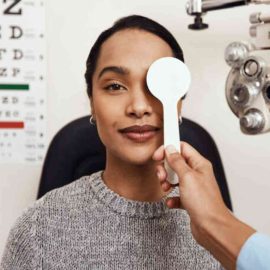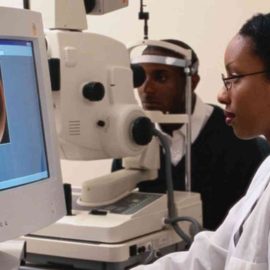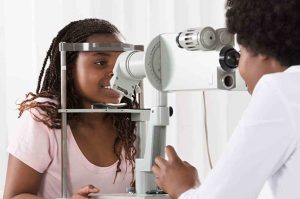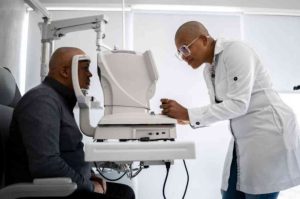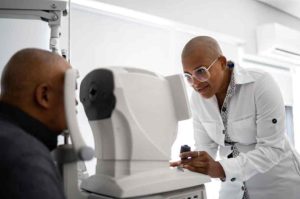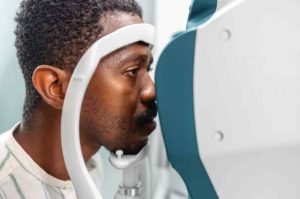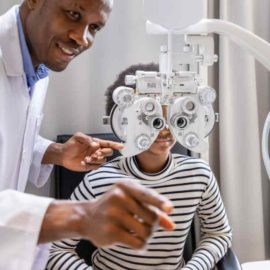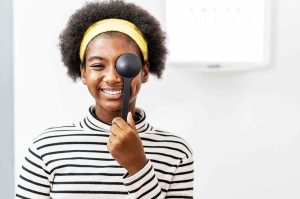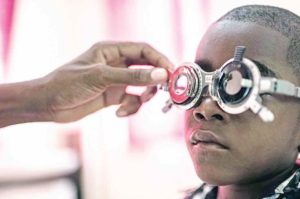The Difference Between Optometrists, Ophthalmologists, and Opticians Explained
When it comes to taking care of your eyes, it’s important to choose the right professional for your specific needs. Understanding the difference between optometrists, ophthalmologists, and opticians can help you make an informed decision about who to trust with your eye care. In this blog post, we will explore the roles and expertise of these eye care professionals to guide you in selecting the most suitable option for maintaining good eye health.
Choosing the Right Eye Care Professional for Your Needs
When it comes to caring for your eyes, it’s important to choose the right eye care professional for your specific needs. Understanding the differences between optometrists, ophthalmologists, and opticians can help you make an informed decision that ensures the best care for your eyes.
- Understanding the differences: Optometrists specialize in conducting eye exams and prescribing corrective lenses, while ophthalmologists are medical doctors trained in eye care and surgery. Opticians, on the other hand, help in fitting and dispensing eyeglasses and contact lenses based on prescriptions.
- Consider your specific needs: Before choosing an eye care professional, consider your specific eye care needs. Do you need a routine eye check-up and prescription for glasses or contact lenses? Or do you have a serious eye condition that may require surgical intervention?
- Research and inquire: Before making a decision, research and inquire about the qualifications and experience of the eye care professional. This will help ensure that you receive the best possible care for your eyes.

Understanding the Role of Optometrists in Eye Health
Optometrists specialize in conducting eye exams and prescribing corrective lenses for vision issues. They play a crucial role in detecting and managing common eye conditions such as myopia and astigmatism. Regular visits to optometrists can help in maintaining good eye health and preventing potential vision problems.
The Expertise of Ophthalmologists in Eye Surgeries
Ophthalmologists are highly-trained medical doctors who specialize in eye care and surgery. They possess the expertise and skills required to perform complex eye surgeries with precision and care. Some of the advanced eye surgeries that ophthalmologists are capable of performing include cataract surgery, laser eye procedures, and retinal detachment repair.
Patients with serious eye conditions that may require surgical intervention should consult an ophthalmologist for proper diagnosis and treatment. Ophthalmologists work closely with patients to determine the best course of action for their specific eye condition, ensuring the highest level of care and successful outcomes.

Dispelling Myths About Opticians and Their Services
Opticians are trained professionals who play a vital role in the eyecare industry, ensuring that individuals have access to the right eyewear for their vision needs. Let’s debunk some common myths surrounding opticians and clarify their essential services:
- Opticians Do Not Diagnose Eye Conditions
Contrary to popular belief, opticians are not qualified to diagnose or treat eye conditions. Their primary responsibility is to interpret and fill prescriptions provided by optometrists or ophthalmologists to ensure the correct lenses are fitted for optimal vision correction.
- Opticians Assist in Eyewear Selection and Fitting
Opticians are skilled in helping customers select the most suitable eyeglasses or contact lenses based on their prescription and lifestyle preferences. They consider factors such as frame style, lens type, and fit to ensure that the eyewear meets the individual’s visual needs and comfort.
- Opticians Ensure Proper Adjustment and Comfort
After selecting the appropriate eyewear, opticians meticulously adjust and fit the glasses or contact lenses to ensure maximum comfort and effectiveness. This service is crucial to prevent discomfort, eyestrain, or vision issues that may arise from poorly fitted eyewear.
By understanding the valuable role that opticians play in the eyecare process, individuals can appreciate the expertise and assistance provided by these professionals in enhancing their visual acuity and overall eye health.
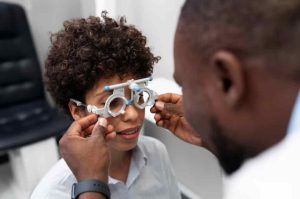
Optometrists vs. Ophthalmologists: Who Should You See?
When it comes to seeking eye care, the decision between seeing an optometrist or an ophthalmologist depends on your specific needs and concerns.
Optometrists are primary eye care providers who specialize in conducting eye exams and prescribing corrective lenses for vision issues. If you are due for a routine eye check-up or need prescription glasses, an optometrist is the right choice for you.
Ophthalmologists, on the other hand, are medical specialists trained in eye surgery and the treatment of eye diseases. If you have a specific eye condition that requires surgery or advanced treatment, consulting an ophthalmologist is essential for proper care.
Ultimately, the decision of whether to see an optometrist or an ophthalmologist depends on the nature of your eye health concerns. If in doubt, it’s best to consult with both professionals to determine the appropriate course of action for your eye care needs.
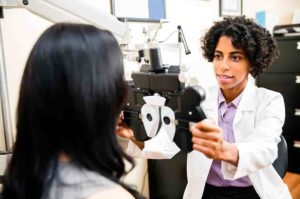
Accessing Quality Eye Care Services in Nigeria
When it comes to your eye health, it is essential to choose a reputable and experienced eye care professional in Nigeria. Consider the following factors to access quality eye care services:
- Research reputable eye care clinics and professionals in Nigeria.
- Check the qualifications and experience of the eye care provider.
- Read patient reviews to get an idea of the quality of services offered.
- Ensure that the eye care clinic has the necessary equipment and facilities to provide comprehensive eye care services.
By taking these steps and being proactive in your search for quality eye care services, you can ensure that your eye health is in good hands. Don’t hesitate to reach out to trusted professionals in Nigeria for all your eye care needs.
Conclusion
When it comes to eye care, understanding the differences between optometrists, ophthalmologists, and opticians is crucial in making informed decisions about your eye health. Optometrists play a vital role in conducting eye exams and prescribing corrective lenses, while ophthalmologists are experts in performing eye surgeries and treating serious eye conditions. Opticians, on the other hand, help in fitting and dispensing eyeglasses and contact lenses.
Whether you need a routine eye check-up or specialized treatment, it’s essential to choose the right eye care professional based on your specific needs. Researching reputable eye care clinics and professionals in Nigeria can help you access quality services and ensure optimal eye health.
Overall, prioritizing your eye health by regular visits to eye care professionals and following their recommendations can help in maintaining good vision and preventing potential eye problems in the future.

